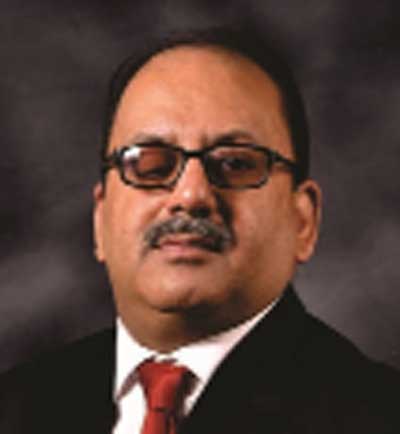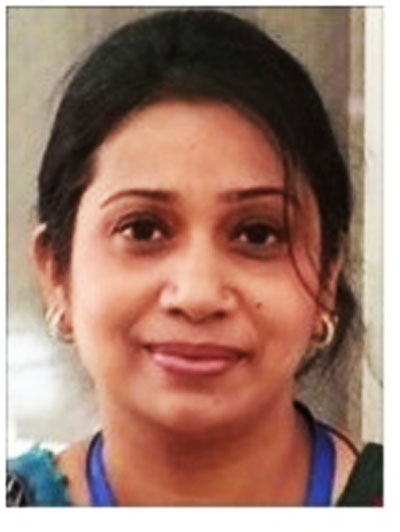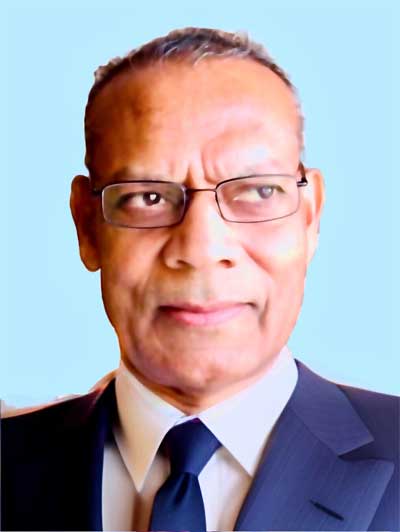There is not perfect or ever can be but the struggle to achieve perfection is a human struggle and goes on. In Pakistan, our struggle as a nation and our slow progress towards growth and ability has suffered a lot due to poor judicial system in the country. This we must all accept and this we must all strive to change.
Unfortunately in Pakistan the concept of justice is totally different than what we see around the word. Why I say this because this is the most common subject that remains under discussion every day throughout the year. It is not only with people that it remains under discussion but it has always remained and still alive with eminent jurists, retired lawyers and various committees and commissions that were constituted to go in to the causes of delay in justice. A very common saying on law we hear every day “Justice delayed, Justice denied. But at the same time the lovers of delayed justice advance the argument that “Justice hurried, Justice buried”, but it is disputable as it does not lay down the time frame of justice and that is the real issue. It is strange that lawyers community who are responsible for the delays also seen actively discussing this common issue of delay in justice but practically has taken no steps to improve the system.
It was very bold confession on the part of former Chief Justice of Pakistan Mian Saqib Nisar who in October 2018 while addressing seminar organised by SCBA admitted that judges and lawyers are responsible for the exploitation of litigants. He regretted that in some cases even knowledge of basic law was not adequate with the judges and they are highly paid roughly single judge cost the government Rs 55000 per day. He admitted excessive delay in civil cases and cited an example in which Supreme Court restored possession of house to an old lady after 61 years. But question arises while making these assertions he simply wanted to convey that performance of judges has not been up to the mark but failed to suggest how to improve this pathetic state of affairs that simply means denial of justice. How many people can afford to go to High Courts or for that matter Supreme Court? It is now very expensive exercise and time consuming. He just cited just an example of lady who waited for 61 years but hundreds of such cases must be pending in various courts. The matter has a simple solution why that was not followed and even now there is no improvement whatsoever.
The owner of any house has right to get his house vacated whenever he deems it necessary with normal notice period ranging from one to two months. In the first instance why owner should go to court and beg for vacation of his house. A simple complaint to SHO should suffice to throw the tenant out of house. In case the matter is taken to the court after receiving application from owner or tenant court should pass vacation order same day instead lingering on for years, secondly no appeal should be allowed in such cases because the property is not under dispute. The laws should be people friendly who come to seek justice. It will be of interest to mention that when there is martial law in the country the only request by general public is to transfer their cases from civil courts to military courts just for one reason that they provide quick dispensation of justice and not decisions by hearing both the parties and there are no adjournments. In our country delays invariably occur in the disposal of civil and criminal cases and in some cases it takes two decades as mentioned by former Chief Justice. It will be incorrect to suggest that problem of delays has been totally neglected but fact remains it has not been handled properly.
The data available says that 45,508 cases were pending in the Supreme Court till July 31, 188,411 cases were pending in Lahore High Court, 84,341 cases were pending in High Court of Sind, 38,464 cases were pending in Peshawar High Court, 5,313 cases were pending in High Court of Baluchistan, 15,847 cases were pending in the Islamabad High Court, 1,287,121 cases were pending in District Judiciary Punjab, 105,458 cases pending in district judiciary Sind, 210,025 cases were pending in district judiciary Khyber Pakhtunkhwa, 17,000 cases were pending in district judiciary Baluchistan and 43,924 cases were pending in district judiciary Islamabad. The figures keep varying but question arises what the people should do? With such heavy backlog it will take years by then fresh cases would be added making no difference at all. There is always a limit to any case; apparently if that is the situation one cannot expect justice. Before arriving at solution, we should discuss the major stake holders involved in administering justice.
First is the state followed by judiciary, litigants, and lawyers? State is helpless as they have allowed the lawyers to do anything which is detrimental to system. Lawyers as a body can force lower judiciary in delaying the proceedings, and get favourable decision. Today an inferior court is afraid he may be beaten up and harassed. Scores of examples can be given where lawyers were found beating and harassing judges. In our country judicial system was never given a priority, reforms carried out lacked foresight. The state failed to look in to the facilities like proper court room, staff, salaries and job security and security from all external elements. Thirdly the lawyer’s movement has left the officers of the court politicised and now lawyers fraternity considers themselves above the law. Latest incident of lawyers attacking Chief Justice Office of Islamabad High Court is something that should worry us all. Had we punished attackers of Supreme Court of Pakistan on 30 November 1997 Islamabad High Court incident may not have occurred such acts deserve highest punishment. In another incident lawyers ransacked hospital in Lahore and were let off. The failure of above stake holders results in more sufferings of litigants.
Our judicial system has failed to provide justice. It will be worthwhile to quote a reference authenticated by Barrister Khawaja Naveed that former Chief Justice of Punjab High Court Justice M R Kayani in his book “The half truths” talks about a case that while he was Session Judge at Lahore, a litigant appeared and when he told him that his appeal is Time barred so it is rejected. The litigant replied in an anger Judge Sahib “Yay koi Insaf tu na hua”Justice Kayani got angry but allowed him to go and adds further that the anger was on his tongue but not in the heart and pondered over it and concluded that it was true that we were not administering justice but only give decisions. We see a man is killed in daylight but no witness comes forward for fear of being killed, the killer is acquitted and he again repeats the same offence. Pakistan ranked 120 out of 128 countries on rule of law, rest is history.
No commissions, no committees, no law reforms, no senate committees on reforms can reduce and minimise the delay in cases except for taking revolutionary and practical steps as suggested under.
a. Increase the strength of judges in all the High Courts to 100
b. Increase the strength of Supreme Court Judges to 60
c. Establish Session and lower courts to 50 in each province
d. Hand over the pending cases to be disposed off maximum in 4 months
e. System of police investigation has failed miserably for obvious reasons, outsource the investigation
f. Fix time period for each case and its investigation. No need to have fleet of witnesses just 2 to 3 witnesses are more than enough
g. If the party does not turn up wind up the case without giving fresh date
h. Stay Order is temporary relief under no circumstances it should exceed 30 days
i. 5 Special Courts be established one in centre rest four in provinces for hearing political cases and decided within 7 days and no appeal should be allowed. For example let us take case of dual nationality, he/ she has it or he/she does not have it? Is it a rocket science
j. The backlog of cases must be cleared in 6 moths
k. Once the backlog of cases is over the additional judges and courts may be reduced accordingly
l. Except for the Plaintiff and Defendant and their lawyers and witnesses no one should be allowed in the courts jurisdiction as is practice in the rest of the world
It is always the government that creates problem in implementation of any proposal. Latest example in which Supreme Court ordered establishment of 120 Accountability Courts in July 2020 to clear backlog of references but nobody bothered. We have solution of all the problems but lack of will and love for status quo, are the biggest impediments. How long people can wait? With long delays one gets frustrated. People take law in their own hand. Its time not to test their patience anymore. The world has moved on and we are staying far behind and judiciary must accept its portion of inefficiency, ineffectiveness and lack of reforms to keep us in the stay
Sign in
Welcome! Log into your account
Forgot your password? Get help
Password recovery
Recover your password
A password will be e-mailed to you.






